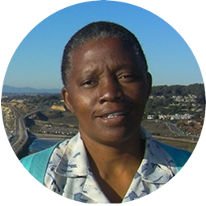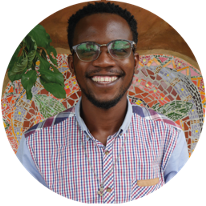We are all of us
OCSI


Who We Are
The O.C.S.I – Obra de Caridade Da Criança Santa Isabel, is a private, non-profit social association with national headquarters in Luanda, in the municipality of Viana. The institution is governed by law no. 6/12 of 18 January – the Law on Private Associations in Angola, and by decree no. 84/02 of 31 December – NGO Regulations.
O.C.S.I. is based on Catholic Christian principles, independent of any religious community. Its purpose is to ensure the protection of children who are orphans or in situations of risk and vulnerability runing programmes and projects in the fields of education, health and community development, promoting dignity and solidarity in order to build the common good and a just world.
MISSION AND VALUES
O.C.S.I.'s values are based on the Christian principles of brotherhood, solidarity, fraternity, love of neighbour and honesty. We work on these values on a daily basis in the institution and in the community in which it operates, building a family atmosphere.


Protection and development for orphans in need.


Integration into families and society, securing a better future.
A History of Social Commitment
The Santa Isabel Children’s Charity began in 1996 as a shelter called the Santa Isabel Children’s Home. Its aim was to respond to the support needs of children in vulnerable situations, until then referred by the parish of Boa Nova in the municipality of Viana, by providing shelter for children and young people who were orphans, victims of war, abandoned or disadvantaged.
On 23 August 2002, the institution took its current form, legally establishing itself as Obra de Caridade da Criança Santa Isabel – O.C.S.I. Since then, the work carried out by the institution has grown and gained recognition due to its positive impact on the lives of hundreds of children and the local population. O.C.S.I. understands the importance of the community’s role in ensuring basic rights, protection and well-being, which is why, since its foundation, it has sought to promote initiatives that benefit the community and promote the healthy integration of children into society.
Today, we are a large family with almost 30 years of history marked by many efforts, difficulties and also achievements. There have been many initiatives and realised projects that have benefited hundreds of people and families, making O.C.S.I. a local benchmark for social engagement with actions aimed at improving the quality of life of society as a whole. However, we know that our achievements are only possible thanks to the involvement of the community and the collaboration of partners.
Our initiatives are aligned with basic needs for human development, whether in the areas of health, nutrition or education, as well as indispensable needs that involve valuing life, solidarity, ethical values, spiritual values and a culture of peace.
Help us keep them smiling
Testimonials
Our team
The institution currently has 28 employees who make up this large family. Meet some of them:
Partners and Collaborators
A LIFE FOR OTHERS
MANA TITI
Between 1981 and 1986 she dedicated herself to consecrated life in the Congregation of the Dominican Sisters of St Catherine of Siena in Luanda. She was sent to N'dalantando where she worked for three years, but in 1989 she became very ill and was sent to Portugal for treatment. During her experience in Europe, she realised that rich and poor children studied together, so she promised herself to bring this concept to Angola, an aspiration that is reflected today in her initiatives to promote education, health and equality.
On her return to N'dalantando, where Angola was still living through a period of civil war, Sister Domingas promoted literacy programmes, thus acquiring self-confidence and developing her skills.
Since then, O.C.S.I. has helped more than 10,000 children in the Children's House, made more than 14,000 children literate through the distribution of scholarships, and helped build six schools.
MANA TITI, as she is affectionately called by the children, transmits firmness, simplicity, joy and fidelity and spares no effort to rebuild a new man and a new Angola. ``As long as there are children in need of care, I believe my work is not yet complete.`` This is the motto of a woman with great maternal love, whose main priority is to guarantee the life and care of the children she takes in. Her strength is fundamental to the continuity of this project and her achievements have local and international recognition.
Our Groups
The children and young people taken in by the Santa Isabel Children’s Charity are organised into groups according to age, gender and school level.
Each group is accompanied by an Educator, a beneficiary of the “WHO HELPS IS HELPED” Project, whose priority is to look after and monitor the needs of their respective group. In this way, we strive both to fulfil the daily activities and to ensure that each child and young person receives an adequate welcome.


We currently have nine groups, identified and differentiated by names and colours.
OUR GROUPS


ANJINHOS – Boys and Girls
This is the group of babies aged 0 to 4 who are welcomed into our nursery by the RENASCER E CRESCER Programme. They receive protection and the first neonatal care in terms of health and nutrition and also have access to the Community Children’s Centre (CIC). The basic needs of this group include breastfeeding, the provision of nappies, clothing and medicines, which are met exclusively through donations.


ESTRELINHAS – Girls
A group made up of girls aged 5 to 8, who have been taken in or who no longer belong to the Little Angels Group. At this stage, they benefit from initiatives such as the FLOWER OF KNOWLEDGE Programme, as they are introduced to pre-school and literacy in the first school classes (1st Class, 2nd Class and 3rd Class). But in order to guarantee healthy early childhood development, this group has other needs that must be continually met, such as nutrition, health, protection and well-being.


AZULINHOS – Boys
This is the group of children aged 5 to 8, who have been taken in or no longer belong to the Little Angels Group. Like the little stars, they are introduced to pre-school and literacy in the first school classes (1st, 2nd and 3rd), through the FLOWER OF KNOWLEDGE programme. Little Blues are also in early childhood and need their basic needs such as nutrition, health, protection and well-being to be minimally guaranteed.


VERDINHAS – Girls
These are girls between the ages of 9 and 12 who are lagging behind at school. They access the FLOR DO SABER programme and are introduced to literacy or the accelerated learning module, which corresponds to two (02) classes per year. In this age group, in addition to basic needs, psycho-pedagogical care and monitoring of school development also need to be minimally offered.


GROUP VERMELHINHOS
This is a group of boys from 9 to 13 years old, who attend the 4th, 5th and 6th grades of regular school. When they reach the age of 14, Reds who are doing well at school go on to the next classes of mainstream education. Little Reds who are behind in school are given access to the Kala-Kala and Cabiri Vocational Training Centers, where they receive training in carpentry, metalwork, carpentry and agronomy.
Translated with www.DeepL.com/Translator (free version)


GROUP ROSINHAS
This is a group of girls aged between 9 and 13, and they attend the 4th, 5th and 6th grades of regular school. In this age group, in addition to basic needs, psycho-pedagogical care and accompaniment in school development also need to be minimally offered.


GROUP SOLZINHAS
They are teenagers between the ages of 14 and 16 and attend the 7th, 8th and 9th grades. As well as having access to formal education, they also have access to extracurricular activities promoted by the O.C.S.I. such as singing and music lessons, computer classes, language classes and sports activities.


GROUP AURORAS
These are young women between the ages of 17 and 22 who have not been referred for adoption. They remain in the care of the O.C.S.I., which seeks to encourage them to develop their autonomy and find the means to support themselves. They are encouraged to finish high school and some, through private initiatives such as sponsorship, receive financial support to go on to higher education. When they reach the age of 18, some young people join the “WHO HELPS IS HELPED” program and thus learn to take on responsibilities by collaborating as an Educator in one of the other groups.


GROUP SÁVIO
These are young people between the ages of 14 and 16, who have reached the 7th grade or are in the Kala-Kala and Cabiri Vocational Training Program but still need support and shelter. They live in other accommodation run by O.C.S.I., due to INAC’s recommendations. This group is strongly characterized by the phase of human life where they are challenged to find the means and support to develop their talents and autonomy, in order to achieve the prospects of a more dignified future.











